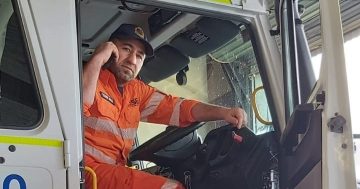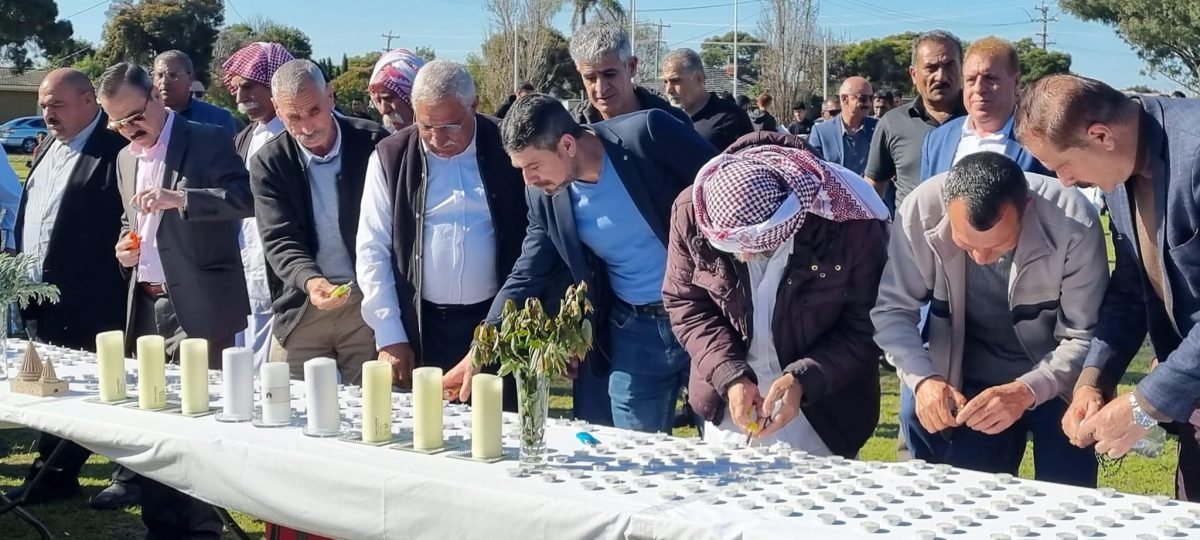
The Wagga Wagga Yazidi will commemorate the 10th anniversary of the genocide against the Yazidis in Iraq. Photo: Supplied.
As Wagga’s growing community of Yazidi refugees prepares to commemorate the 10-year anniversary of a genocidal attack by ISIS in Iraq, author Shelan Khodeah shares their story of survival.
In 2014, ISIS attacked the Yazidi community in Shingal, Iraq.
Most of my community stayed in Shingal thinking they had enough protection, but unfortunately, ISIS was stronger than our soldiers.
Some Yazidi people ran up to the mountains of Shingal because it was the closest place they could get to and many died there due to the lack of food and water and the hot summer sun.
ISIS killed the men because they refused to change their religion. They took women and children.
More than 85 mass graves were discovered in Shingal in addition to dozens of individual cemetery sites.
The numbers are terrible, but the pain, suffering and trauma are much, much worse.
Many kidnapped women committed suicide, fearing rape. Most women who survived were assaulted even if they were married or had children.
After thousands of women, men and children were killed, the Yazidi people in Shingal gained their autonomy and set up their own administration.
They recovered many remains of my massacred people, abandoned in their lands for all these years. The work of identification is still ongoing today.
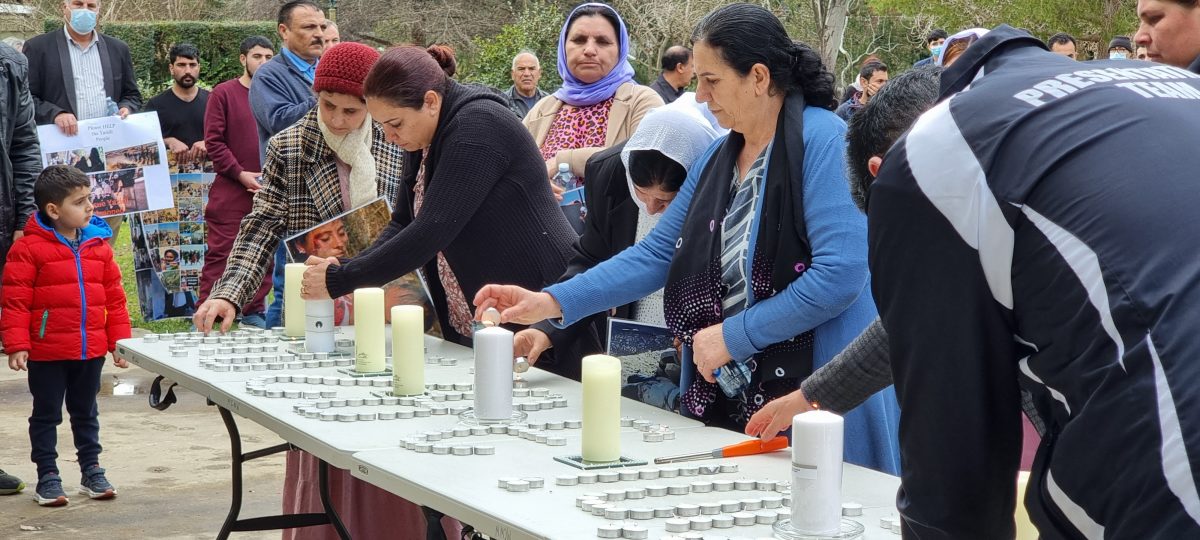
Every year, the Yazidis hold the Black Day anniversary on 3 August. Photo: Shri Gayathirie Rajen.
The Yazidi people of Shingal have been waiting ten years for justice since the genocidal massacre.
Many of my community members have been stuck in refugee camps since 2014.
They were separated into different camps in Turkey, Bulgaria, Greece, and South Kurdistan (northern Iraq).
My community is still a victim of war. Due to weather conditions in the camps, a lot of Yazidis suffered because their tents burned hot during the summer and froze during the winter.
They couldn’t have heaters in the tents. There was no food, clothes, electricity, water, safety, psychologist services or pharmacies.
Shingal needs a lot of support right now: international protection, infrastructure reconstruction, education, integration of survivors into the community, health services, electricity, water and most importantly, peace.
Many families have now returned to Shingal after facing difficulty staying in refugee camps for 10 years. The region remains unsafe and many families have established temporary camps as ISIS has destroyed their houses.
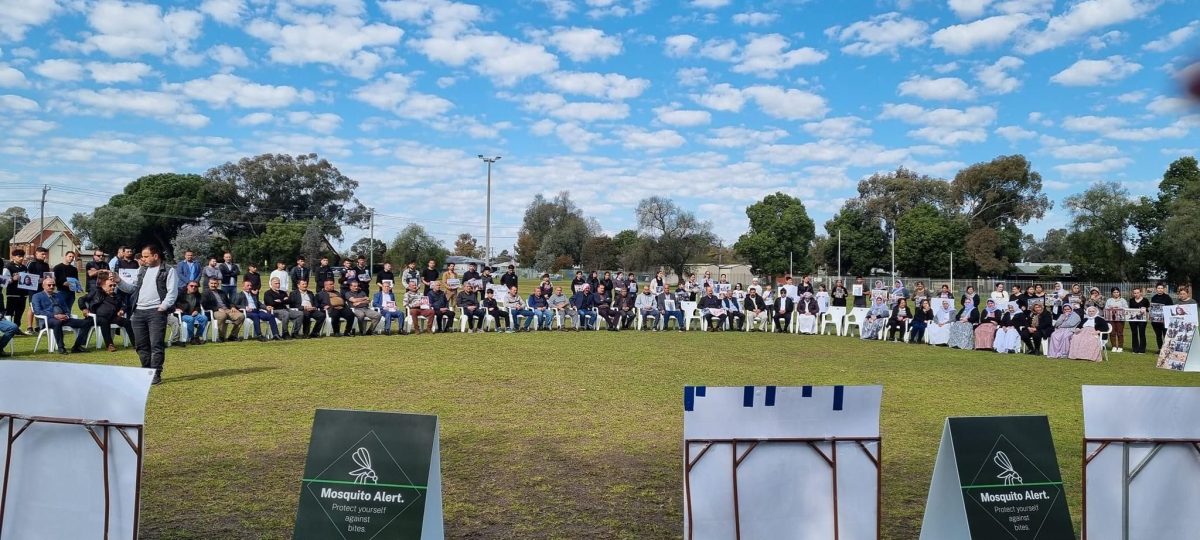
2024 marks the 10th Black Day Anniversary. Photo: Supplied.
In 2016, the first family arrived in Australia, Wagga Wagga. This migration has continued until today when our community has reached 10 per cent of the Wagga Wagga population. It is amazing to see a community grow up that quickly and settle in Wagga!
Many Yazidi women in Wagga are still deeply affected by the traumatic events of the genocide, experiencing significant mental health challenges as they try to cope with their past trauma.
Even though they see counsellors and take medications, they still need more support, especially around the time of Black Day.
Every year, on 3 August, we, the Wagga Yazidi community, organise Black Day. We call it Black Day because our community saw darkness and sadness on that day.
Many people lost their families and relatives, and survivors go through difficult times, experiencing lack of sleep, depression, passing out and seizures. Some of them end up in the emergency room.
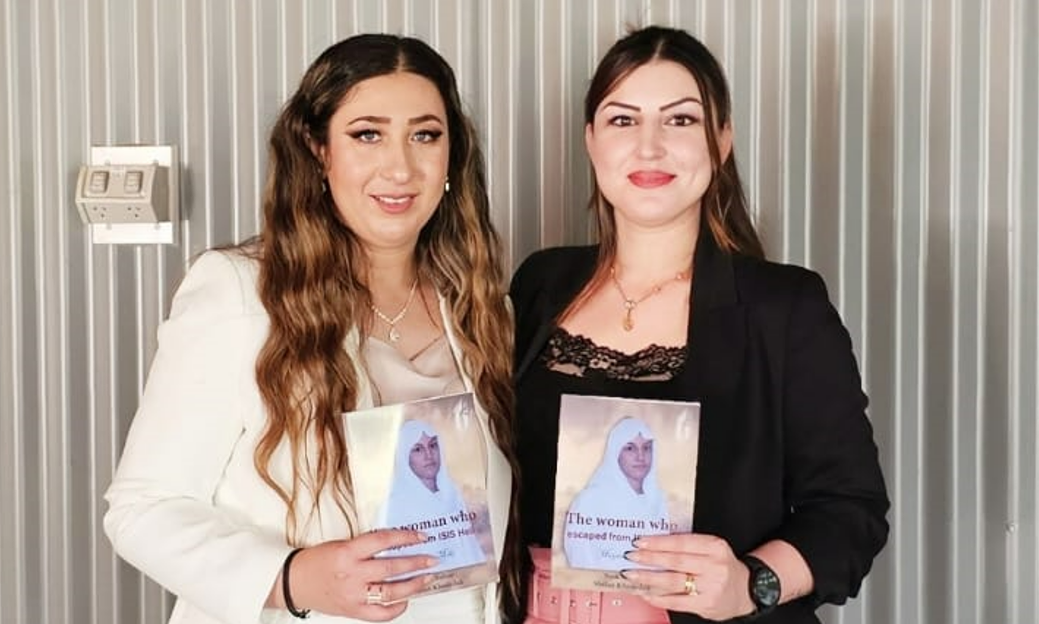
Wagga author Shelan Khodedah with ISIS captive survivor Hayam Mihi. Photo: Supplied.
As we mark a decade since this tragic event, we come together to reflect, remember, and reaffirm our commitment to justice and peace. We honour those we lost, recognise the resilience and courage of the survivors, and acknowledge the ongoing efforts to rebuild and heal our community.
People attending will be asked to light a candle for our martyrs in honour of the suffering of all Yazidi people. Your presence will be a powerful testament to the resilience of the Yazidi community in Wagga Wagga and a step towards ensuring that such tragedies are never forgotten.
The 10th Black Day Anniversary will be held at Henschke Primary School on Saturday, 3 August from 11 am to 1 pm.
Black Day program includes opening remarks, testimonies from survivors, a candlelight vigil, a minute of silence and a musical tribute.
Anyone experiencing distress can seek immediate advice and support through Lifeline (13 11 14), Kids Helpline (1800 55 1800), or the digital mental health gateway, Head to Health.
If you are concerned about suicide, living with someone considering suicide, or bereaved by suicide, the Suicide Call Back Service is available at 1300 659 467.







